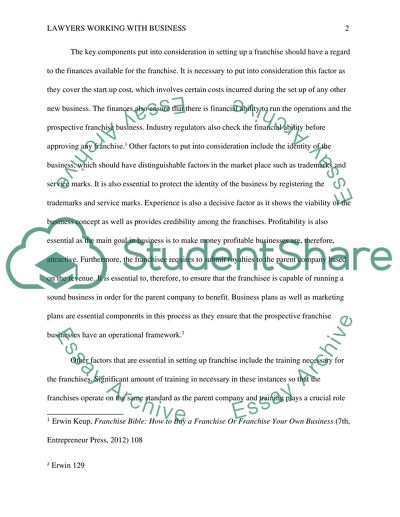Cite this document
(“Lawyers Working With Business Essay Example | Topics and Well Written Essays - 2500 words”, n.d.)
Lawyers Working With Business Essay Example | Topics and Well Written Essays - 2500 words. Retrieved from https://studentshare.org/law/1465580-lawyers-working-with-business
Lawyers Working With Business Essay Example | Topics and Well Written Essays - 2500 words. Retrieved from https://studentshare.org/law/1465580-lawyers-working-with-business
(Lawyers Working With Business Essay Example | Topics and Well Written Essays - 2500 Words)
Lawyers Working With Business Essay Example | Topics and Well Written Essays - 2500 Words. https://studentshare.org/law/1465580-lawyers-working-with-business.
Lawyers Working With Business Essay Example | Topics and Well Written Essays - 2500 Words. https://studentshare.org/law/1465580-lawyers-working-with-business.
“Lawyers Working With Business Essay Example | Topics and Well Written Essays - 2500 Words”, n.d. https://studentshare.org/law/1465580-lawyers-working-with-business.


